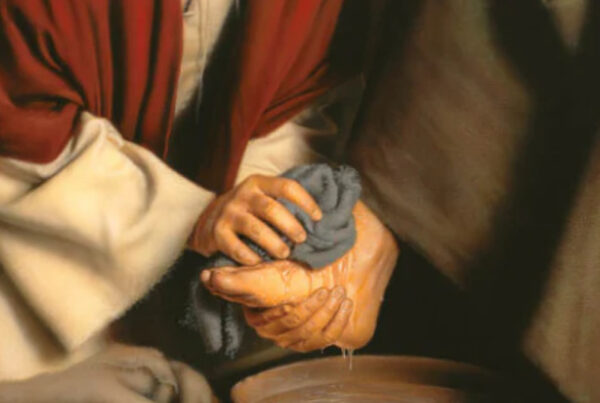Book of Amos: Chapter 8
Amos begins this record again with the term ‘Sovereign Lord’—God of all creation and life. For the farmer, the basket of ripe fruit represents the end of the harvest and time for consumption. But it was Israel which was about to be consumed… by God’s wrath. God describes what it will be like: death everywhere and silence.
God is hurt by the way that Israel has treated His people given all that He had taught them. Their laws as recorded in Deuteronomy, required generosity to the poor, but instead many Israelites were leveraging their circumstances for profit. Their obsession with multiplying profits and feeding their self-indulgence was such that their focus was on the end of the Sabbath rather than on worship and prayer. Their observance of the Sabbath and feasts appointed by God was done merely as an exercise that they thought brought them ‘gold stars’ with God. Constantly trying to out-do the next person they focused on new ideas to get ahead even if it meant breaking God’s laws and hurting His people. A pound of grain for the poor comprised some grain and some dirt. They were guilty of skimping the measure, boosting the prices and adjusting the scales. All the time the marginalized people were being hurt. This was way beyond ’keeping up with the Jones.’ God says, “I will never forget it.”
So how did Israel go from having leadership which focused on God’s law in order to be successful to leadership in which breaking God’s laws is the means of getting ahead? Wasn’t it God’s grace and favor which always brought success to His people? If that worked, why change it? Did the Israelites not remember that those they cheated were also God’s people? This is the very reason that mankind could not be entrusted with fair leadership. When Israel first wanted a king, they pleaded with God, and He relented, but on the condition that His voice via the Prophets would be the guiding force for the king and the nation. The priesthood was supposed to keep God’s Law in the forefront on behalf of the society. Not long afterwards, Saul, the first King silenced Samuel the prophet so that he could have his way. David, however, listened to Nathan, and Israel thrived for a time. But historically, whenever the king chose his own rules in lieu of God’s, he silenced the prophet and made the priesthood his own. Man led, and the people suffered. All through the first millennia A.D., Western culture seemed to also adhere to this script.
Verse 8 seems to describe waves of destruction before the final end. On that day, God says, “I will make the sun go down at noon and darken the earth in broad daylight.” This does not have to be a physical reality. Israel was at the noon or height of her existence — there was so much prosperity at this time. But it is at this time that God would bring His judgment and darken her horizons. Instead of singing, there would be weeping. Instead of feasts, there would be mourning — mourning so painful that it compares with the loss of an only son. Now they would be silenced.
God’s judgment would also include famine. Not a physical famine but a famine of Himself. His people had rejected His word and the result over centuries was a people He could no longer be in community or covenant with. He now had to remove Himself. This kind of judgment was the worst because Israel knew no other life but a life with God in their midst. They had no point of reference for survival outside of this context. Yet, by continuing to reject God they flirted with this possibility. Now they would find out whether they indeed could do a better job of leadership than He.
People would be restless and desperate to hear from God but they would not find Him. After Hosea’s prophecy in 750 BC, there was no prophet sent to the divided kingdom of Israel.
Israel hurt God by hurting his people. According to the Law, they were not required to be Jewish to be His people. They were His people just by being created by Him and in His image. Israel’s worst judgment was God’s absence. But by their behavior, it was also what they had longed for. We have historical and archeological evidence that Amos’ prophecies did eventually come true. What then is our take-away for our own journey from this of Amos’ records?
Key Verse:
“… not a famine of food, or a thirst for water, but a famine of hearing the words of the Lord.” ~ Amos 8:11b
Questions to ponder:
- Does the way we conduct our lives indicate a longing for God to leave us alone?
- What happens when we drown out sounds over time: Do they still affect us? Can we become deaf to God?


